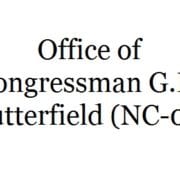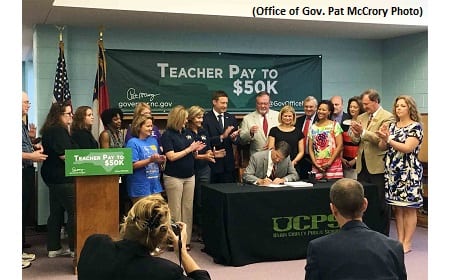WASHINGTON, D.C. – On Tuesday, U.S. Representatives G. K. Butterfield (D-NC) and Glenn ‘GT’ Thompson (R-PA) reintroduced legislation that would direct the Centers for Medicare and Medicaid Services (CMS) to cover physician-prescribed recreational therapy services.
H.R. 626, the Access to Inpatient Rehabilitation Therapy Act of 2017, would amend the Social Security Act to include recreational therapy among the therapy methods that can be considered part of an intensive rehabilitation therapy program in an inpatient rehabilitation hospital or unit.
This legislation would provide flexibility to CMS’ definition of “intensity of therapy” requirement. Essentially, the requirement helps CMS determine which beneficiaries are appropriate for treatment in an inpatient rehabilitation hospital or unit. Until 2010, physicians could prescribe, and CMS would cover, recreational therapy for patients who have brain injuries, those who have sustained strokes and amputations, individuals living with neurological disorders and a range of other conditions.
“When overcoming an injury or disability it is important to be able to access appropriate rehabilitation services,” Butterfield said. “I am proud to join Representative Thompson in supporting this bipartisan legislation to expand the rehabilitation services seniors on Medicare are eligible for. This important legislation will benefit North Carolinians and people across the country who suffer from health challenges like brain injuries, spinal cord injuries, amputations, or cardiovascular complications.”
“A patient’s health plan should be left to their physician and health professionals to determine what is medically necessary,” Thompson said. “Before coming to Congress, I worked as a certified therapeutic recreation specialist. There is no greater joy than to see your patient make progress after a debilitating event such as a stroke, spinal cord, or brain injury. I am pleased to reintroduce this common sense, bipartisan bill with Representative Butterfield, to ensure Medicare empowers physicians to prescribe the best care possible.”
“Inpatient hospital rehabilitation is so effective because of the intensive and diverse therapy programs offered in this setting. Passage of this important Medicare bill will ensure that patients are prescribed the right mix of therapies, including recreational therapy, that meet their individual needs,” said Dawn De Vries, the Past-President (2016-2017) of the American Therapeutic Recreation Association (ATRA). “This is a very patient-centric Medicare bill.”
“We applaud Congressmen Thompson and Butterfield for reintroducing this important legislation to reinstate the discretion of physicians practicing in rehabilitation hospitals to choose the mix of therapies that are clinically appropriate for Medicare patients,” said Dr. Steve R. Geiringer, President of the American Academy of Physical Medicine and Rehabilitation (AAPM&R). “This bill will free the hands of doctors to treat patients with injuries and disabilities according to their individual rehabilitation therapy needs, rather than following unnecessarily restrictive regulations. We urge Congress to pass this bipartisan bill at its earliest opportunity.”
THE ‘THREE HOUR RULE’
CMS has interpreted the intensity of therapy requirement through the metric it calls the “three hour rule.” This rule requires the patient to be able to participate in three hours of rehabilitation therapy per day, five days per week, or 15 hours of rehabilitation therapy over a one-week period.
Prior to 2010, CMS regulations explicitly stated that physical therapy, occupational therapy, speech therapy, and/or orthotics and prosthetics were counted toward the “three hour rule” on an as-needed basis. In addition, CMS regulations stated that other therapeutic modalities that were determined by the physician and the rehabilitation team to be needed by the patient on a priority basis would satisfy the rule.
But on January 1, 2010, Medicare revised its “three hour rule” to include only the following therapies: physical, occupational, and speech therapy as well as orthotics and prosthetics. It removed the discretion of the physician and the rehabilitation team to count other therapeutic services needed by the patient toward satisfaction of the “three hour rule.” As a result, recreational therapy services are often not available to patients who require medically necessary recreational therapy as part of their plan of care.
H.R. 626 would restore all physician-prescribed therapies as part of a patient’s coverage.
SUPPORT FOR H.R. 626
National organizations that support this bill include:
American Academy of Physical Medicine and Rehabilitation
American Medical Rehabilitation Providers Association
American Academy of Orthotists and Prosthetists
American Therapeutic Recreation Association
Association of Rehabilitation Nurses
Brain Injury Association of America
CARF, International (Commission on Accreditation of Rehabilitation Facilities)
Christopher & Dana Reeve Foundation
Council on Brain Injury
United Spinal Association
Bill would direct Medicare to once again cover recreational therapy for patients
https://butterfield.house.gov
###










 a recording from a body-worn or dashboard camera. The law allows any person whose image or voice is captured in the recording, or his or her personal representative, to submit a written request for disclosure and, unless the agency can demonstrate a legitimate reason not to disclose the recording, it must be disclosed as promptly as possible. If a law enforcement agency fails to disclose the recording within three business days of the request, the requester is entitled to an expedited hearing in Superior Court.
a recording from a body-worn or dashboard camera. The law allows any person whose image or voice is captured in the recording, or his or her personal representative, to submit a written request for disclosure and, unless the agency can demonstrate a legitimate reason not to disclose the recording, it must be disclosed as promptly as possible. If a law enforcement agency fails to disclose the recording within three business days of the request, the requester is entitled to an expedited hearing in Superior Court. 66 percent. Additionally, studies show that people who participate in needle exchange programs are five times more likely to enter drug treatment than non-participants, building on Governor McCrory’s commitment to combating drug use.
66 percent. Additionally, studies show that people who participate in needle exchange programs are five times more likely to enter drug treatment than non-participants, building on Governor McCrory’s commitment to combating drug use.
